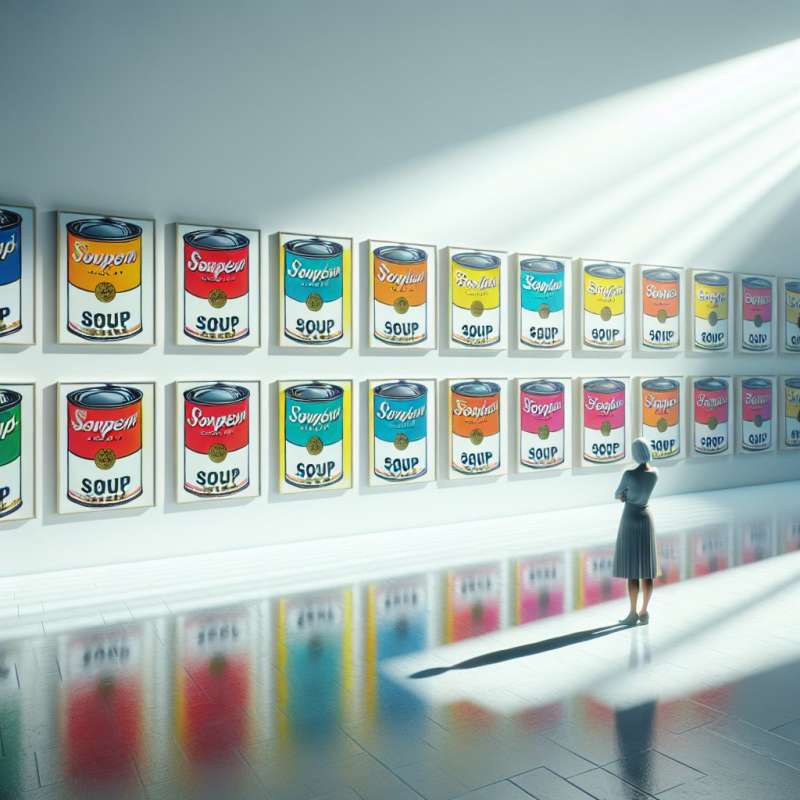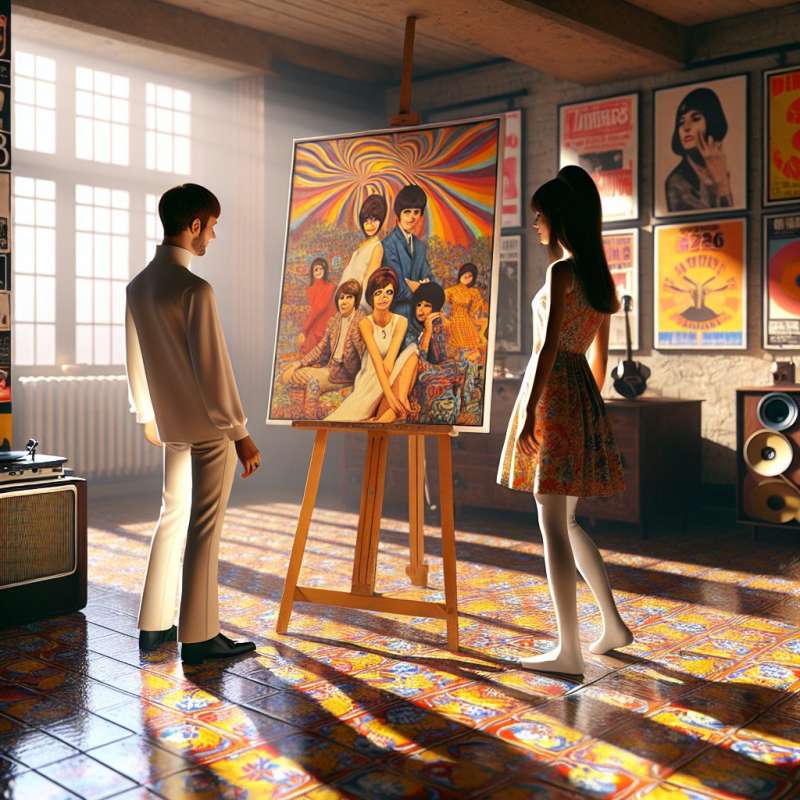
Pop Art Origins
Pop Art emerged in the 1950s, a movement born in Britain and America. It challenged traditions by embracing imagery from popular culture and mass media, reflecting everyday life and consumerism in a way fine art never had before.
Warhol's Soup Cans
Andy Warhol's 1962 '32 Campbell's Soup Cans' became a Pop Art icon. Warhol's work questioned what constituted art, blurring the lines between high culture and mundane objects by presenting them in art galleries.
Lichtenstein's Comic Technique
Roy Lichtenstein's techniques mimicked comic strips, magnifying the dot-matrix printing process. His works, like 'Whaam!' (1963), showcased a blend of fine art and low-culture, satirizing the art world's exclusivity.
British Pop Art
Eduardo Paolozzi's 'I Was a Rich Man's Plaything' (1947) is considered the first standard bearer of Pop Art. It introduced the word 'POP!' in a collage, symbolizing the beginning of the movement's aesthetic dialogue with popular culture.
Cultural Critique
Pop Art wasn't just flashy colors and celebrity portraits. It often provided social commentary, critiquing the burgeoning consumerist lifestyle and the post-WWII boom in manufacturing, subtly questioning the ethics and desirability of mass-consumption society.
Beyond Visual Art
Pop Art influenced more than just visual arts; its effects were felt in music, fashion, and graphic design. The Beatles' 'Sgt. Pepper's Lonely Hearts Club Band' album cover is an example of Pop Art's crossover into other cultural realms.
Legacy and Continuation
The impact of Pop Art continues. Artists like Jeff Koons and Damien Hirst have drawn from its themes, emphasizing the connection between contemporary art and commercialism. Pop Art's legacy lives on, questioning and reflecting society's values.
What decade did Pop Art emerge?
1940s, post-war period
1950s, embracing mass media
1960s, during cultural shifts
Company